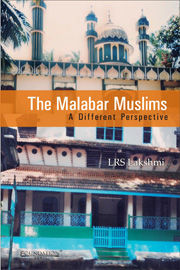Book contents
- Frontmatter
- Contents
- List of Maps
- List of Tables
- Acknowledgements
- List of Abbreviations
- Note on Transliteration
- Maps
- Introduction
- 1 The Hadhrami Roots
- 2 Family and Inheritance Laws: Continuities and Changes
- 3 Religious Spaces and Disputes
- 4 Reformist Trends
- 5 Education and Social Mobility
- 6 Mappilla Leadership and Political Mobilization
- 7 Mappillas in the Twenty-first Century: A Standing Applause
- Conclusion
- Appendix
- Glossary
- Bibliography
- Index
Conclusion
Published online by Cambridge University Press: 05 June 2012
- Frontmatter
- Contents
- List of Maps
- List of Tables
- Acknowledgements
- List of Abbreviations
- Note on Transliteration
- Maps
- Introduction
- 1 The Hadhrami Roots
- 2 Family and Inheritance Laws: Continuities and Changes
- 3 Religious Spaces and Disputes
- 4 Reformist Trends
- 5 Education and Social Mobility
- 6 Mappilla Leadership and Political Mobilization
- 7 Mappillas in the Twenty-first Century: A Standing Applause
- Conclusion
- Appendix
- Glossary
- Bibliography
- Index
Summary
Islamization in Malabar was influenced by various factors, the most predominant being trade and intermarriage in the early centuries. The patronage of rulers such as the Samuthiris in encouraging some of the Hindu castes to embrace Islam was also an important factor. In the late nineteenth and the early twentieth century, conversion among the lower Hindu castes by voluntary choice was often prompted by their poor economic conditions and the prospects of work on the coast. Also, by 1921, there was a mass conversion of the Cherumar population which has been attributed to the rigid landlord-peasant relationship and the Mappilla uprisings. The economic conditions and occupations of the Mappillas were quite disparate for, those of the coastal towns were generally rich, prosperous traders and merchants, often with trade links across the Arabian Sea, and those in the interior regions, particularly later converts from low castes, were agriculturists.
Closely linked to the mode of Islamization, their economic status and occupations, and their Arab identity was the social stratification of the Mappillas into various groups. For example, the thangals claimed a superior status on account of their sayyid ancestry in Hadhramaut, while the keyis, the koyas and the baramis as landed aristocrats and merchants were economically dominant. The pusalars and the ossans, as converts from the mukkuvans, were occupationally inferior and socially distant. Again, the coastal Mappillas considered the inland agriculturist population as economically inferior.
The predominant factor of Islamization on the coast was trade while in the interior religious preachers were dominant.
- Type
- Chapter
- Information
- The Malabar MuslimsA Different Perspective, pp. 171 - 183Publisher: Foundation BooksPrint publication year: 2012



